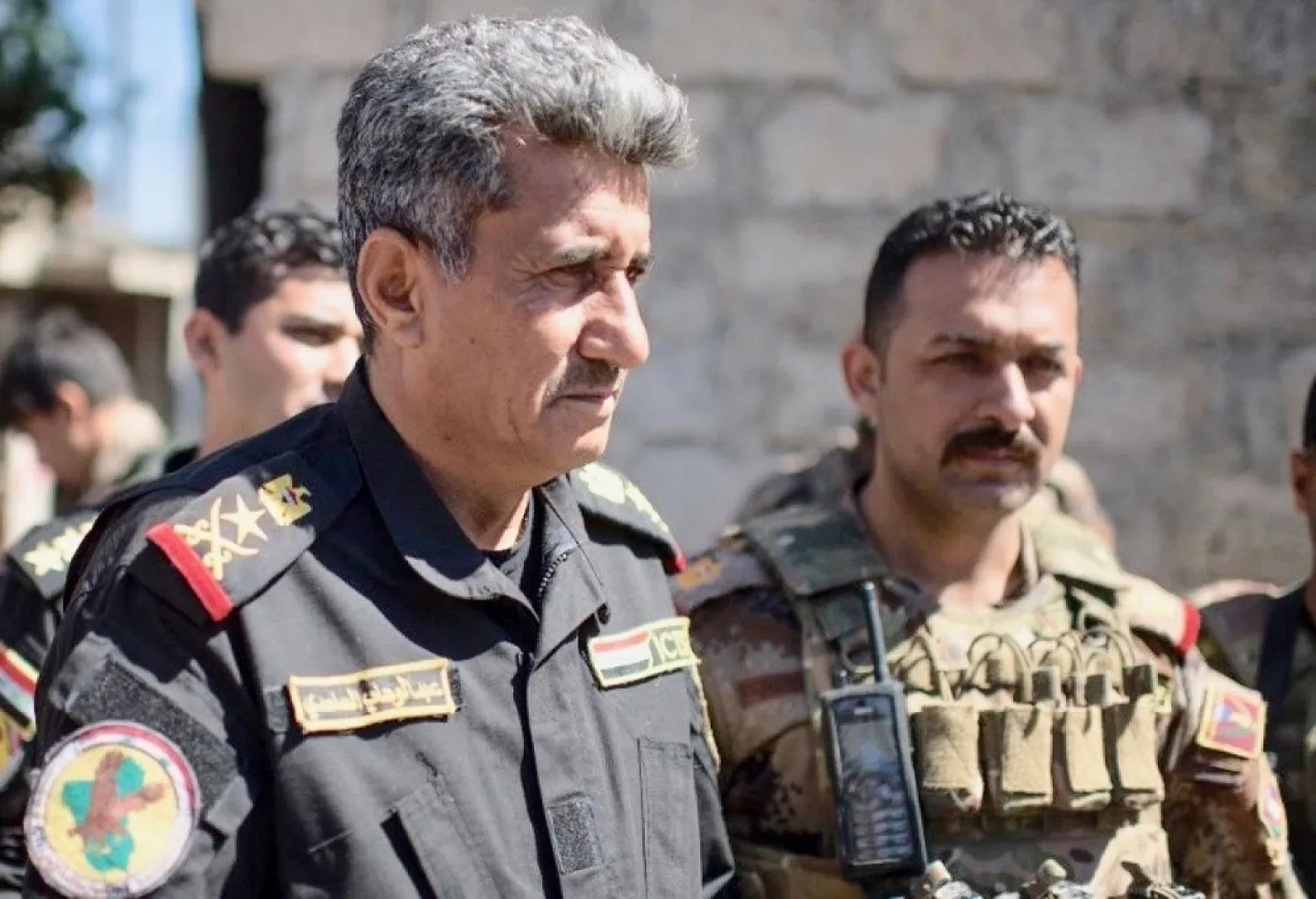Outrage continued in Iraq over Prime Minister Adel Abdul Mahdi’s decision to remove commander of the elite Counter-Terrorism Service, Abdul Wahhab al-Saadi, and transfer him to the Defense Ministry.
Saadi is one of the most prominent commanders who led the war against ISIS in Iraq. He suffered injuries throughout the battle and is often hailed as a hero. Uproar over his dismissal has been unprecedented in the country.
Critics of the move said it was a like an “insult” to the widely-respected military commander.
The transfer to a specific department in the Defense Ministry is tantamount to their punishment or dismissal, they added.
Saadi had previously said he would rather be imprisoned or forced to retire than made to move to the ministry.
Speculation was rife over the motives of Abdul Mahdi’s decision.
Some said it was part if regular procedures and appointments that take place in the upper ranks of the military. Others speculated that it was driven by “foreign agendas” aimed at breaking the image of the military in favor of armed factions.
Some even spoke of Iran’s potential role in ordering the transfer given its animosity to the military institution that has fought its influence for eight years.
Deputy head of the parliamentary security and defense committee Nayef al-Shammari, however, stated that Saadi was a victim of the failure to resolve certain pending issues. He added that the committee will probe the decision to transfer him to the Defense Ministry.
“We have yet to receive an explanation for the move,” he remarked.
Reports even said that Sadrist movement leader Moqtada al-Sadr had intervened to urge the PM against transferring Saadi to the ministry.
Former parliament Speaker Usama al-Nujaifi called on Abdul Mahdi to reconsider his decision.
He said that commanders are usually rewarded for their heroics, warning that the transfer would send a negative message to the military and people.
Former PM Haidar al-Abadi, who also served as armed forces chief during the war on ISIS between 2014 and 2017, tweeted: “This is how the state rewards the fighters who defended the nation.”
Military and security appointments must be based on professional grounds and “we must not squander those who made sacrifices for the people and nation during difficult times.”
Former editor-in-chief of the al-Sabah daily, Fallah al-Meshaal, attributed the uproar over Saadi’s decommissioning “to national consensus over his national principles and Iraqi spirit during the battles to liberate Mosul city from ISIS.”
Speaking to Asharq Al-Awsat, he hailed his humanitarian stances with the people and shunning of sectarianism, which is why the people see in him an example of a national military commander. They rose up to defend his honor in a precedent not enjoyed by any Iraqi politician since 2003.”
Political science professor at the University of Kufa, Eyad al-Anbar told Asharq Al-Awsat: “The people see Saadi as a symbol of the state against the infiltration of militias factions and commanders.”









